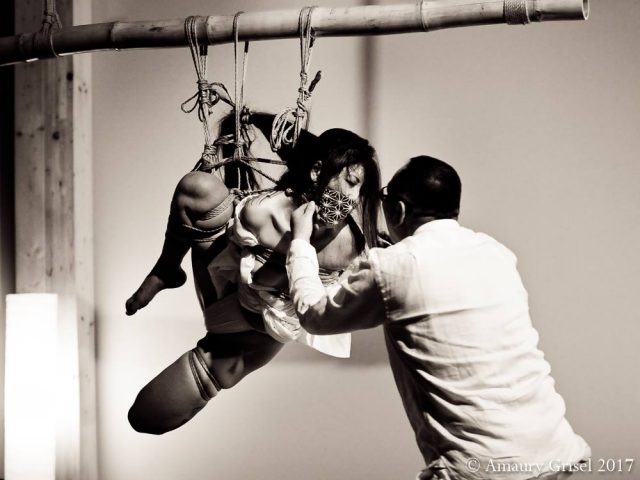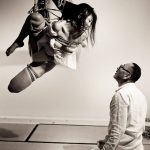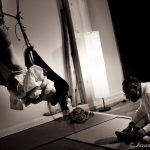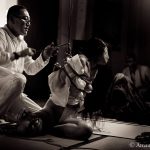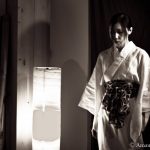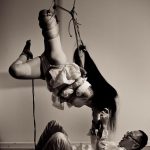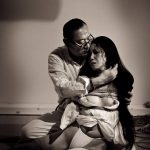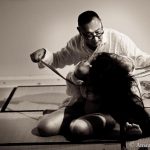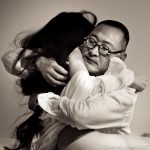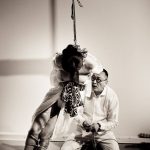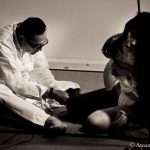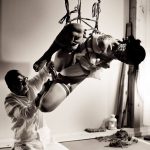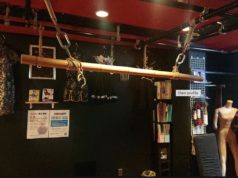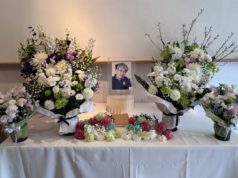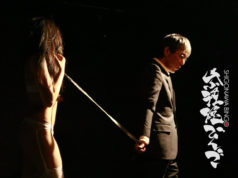In the middle of November 2017 in Turin, Kinbaku Luxuria hosted a Naka Ryu dedicated event. Many people not only from around Europe but from whole world come to see Naka Sensei. Although it wasn’t officially a rope festival, it surely felt like one. Although visiting Japan, and taking part in his private workshops might be slightly troubling for many people around the globe; this event was great opportunity to meet one of the biggest kinbaku inspiration for many riggers nowadays.
While Naka-san was more then willing to share his philosophy with participants of the workshops, I took the liberty to ask him more personal questions about approach to kinbaku scene and about his Sensei – Nureki Chimuo.
You often mention, that Nureki Chimuo was the one that introduced you to the ropes, when you were 30 yo. You also told us that he was like a father to you. What was he like?
He was very straightforward and honest, being able to say what he thinks directly. He was also very kind to people, at the same time being harsh when it comes to bondage and ropes.
Regarding ropes, he really loved sharing his passion and point of view for many hours. Because he was writer, he was really able to form his thoughts beautifully about everything. He was chief editor of Uramado Magazine after all.
One thing I’m sure is that he was definitely a person that created kinbaku scene as a whole at the time.
What was Nureki’s biggest inspiration?
Seems to me like Minomura Kou was his biggest inspiration, because he entered this world through Kitan Club. He proposed his own stories to be published in the magazine. This lead both of them to meet each other, and work together later on.
Kinbiken was a “Beautiful Bondage Study Group” hosted by Nureki. What did kinbiken look like?
It was big knowledge exchange and discussion in fact. While he was tying, everybody participating in the group could talk, share with ideas and suggestions, they could tell him their point of view, or request specific ties, and judge whether it looks good or not.
How did Nureki influenced you as a person?
It’s really hard to say, because I owe him everything I am now. If it wasn’t for him, I wouldn’t be here with you today. Because I was able to meet him, all of this happened to me.
Ikigai is a concept of reason to wake up in the morning. Do you think kinbaku is your ikigai?
Yes
Why do you think so?
My first encounter with kinbaku was mind blowing. Because of that, everything in my life started to have a meaning. I’m so glad it happened. I’m thankful to Nureki-san, because of him, all these wonderful things happened to me.
(Naka-Sensei mentioned earlier he had a model agency, and one of his models was booked for kinbiken. He followed her to see what this is all about, and when he saw her tied he was stunned!)
What is most important for you during kinbaku session?
I always think about the person I tie.
What is your intention during the session, and does it change?
What I really like to do is to observe the person I tie, and capture what they might like. It’s very similar to conversation.
For me kinbaku is very heavy and dark. I don’t consider it light, easy and something I can do with everyone I meet. It’s not like I would say to someone: “Hey, come to be tied up!” – I would never do that. Because I really give myself 100% every single time, I have to consider it very deep and special.
What is that you look for in kinbaku model?
Difficult question. My emotions are very different from model to model. Of course I have very erotic feelings towards my models depending on occasion. Also there are cases when there are none. For me kinbaku is about giving stress. About seeing inner sadness, and how they overcome that stress on the body. Because I see how much effort they put to overcome suffering for me, I have this unbearable kind regards towards that person. In that moment I really feel very human unconditional love towards that person.
What would be the advice you would give for new generation of riggers?
Kinbaku is highly dangerous discipline, and is not something done without thinking. We are holding other people’s life in our hands. My advice is: don’t approach this too lightly. People can be very severely damaged because of that. But keep in mind, kinbaku is very empirical, and we can learn from our experiences.
Photos from Turin Naka show by Amaury Grisel

